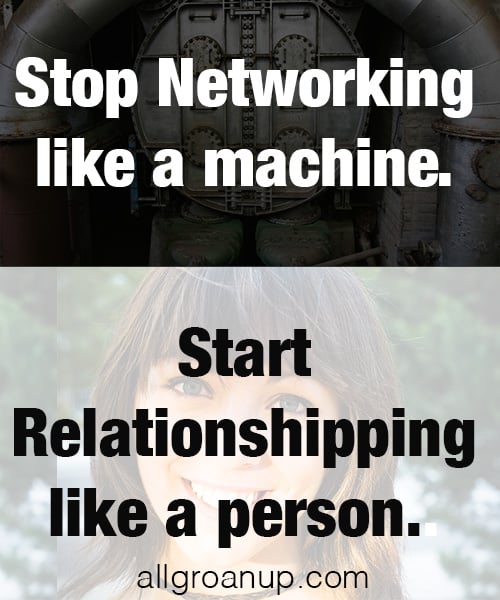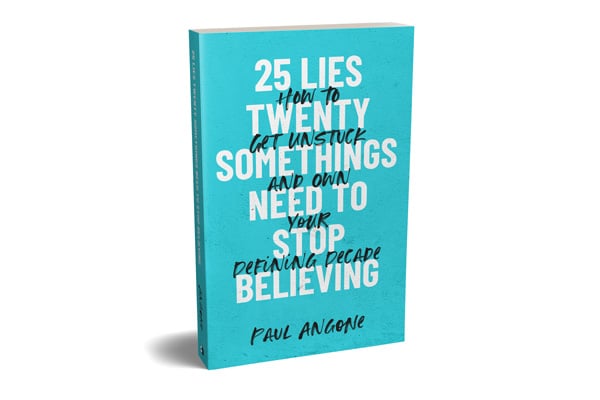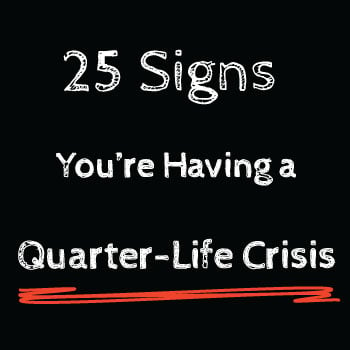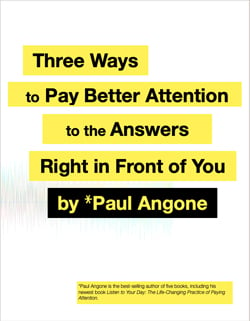You need to stop networking.
You heard me right.
Your networking is actually having a negative effect on your job search, career building, or entrepreneurial efforts.
I mean it.
If you stop networking and start doing this instead, I can guarantee better job openings, career growth, and opportunities than you’ve ever experienced before.
Think I’ve completely lost it? Ready to rain fire and brimstone in the comments section on this article?
Well, let me tell you what’s wrong with networking and what you should do instead.
First, What’s Wrong with Networking?
Let’s look at the two main definitions of “networking”:
- To link (machines, especially computers) and operate interactively.”networked workstations.
- Interact with other people to exchange information and develop contacts, especially to further one’s career.
Beginning to see any issues here?
One definition of networking is to link machines together. The other definition is to link people together, “especially to further one’s career.”
There my friends is the networking kiss of death.
Our typical networking focus and motivation is “what can this person do for me.”
So much of our networking attempts are about our agenda and personal pain points that we’re trying to quickly alleviate.
- I lost my job
- I’m graduating college
- I’m moving to another town
- I opened up a Tutti Fruiti Frozen Yogurt shop and need me some people to eat it up.
- “I better start networking.”
The problem is most of us network only when we need something.
Then we become that guy who’s roaming through the halls giving off that nervous tinge of desperation, and then the moment there is a lull in conversation he thrusts his business card in there like dead rat.
Don’t be that guy.
Alright Paul, but don’t most job opportunities come through people?
Definitely. Many of us have seen the stats that an estimated 70-80% of all job opportunities come through relationships, which I totally dig.
But let’s stop networking to make it happen. Let’s start relationshipping instead.
So much of networking is about us, when building relationships should be focused on them.
Stop networking like a machine. Start relationshipping like a person. (want to tweet that?)
It will be more human, and in turn, much more effective.
7 Ideas For Better Relationshipping
1. Build new relationships when you don’t “need” them
Start implementing a practice and habit of getting to know new people, even when you have no specific “need” to do so.
Be open to new conversations. Don’t fill every awkward space of your day with your phone pretending those around you don’t exist.
Go to conferences with a focus on attending less sessions and meeting new people doing what I call the “awkward wander.”
I can point to many of the biggest breakthroughs of my career happening because I had no agenda, and just awkwardly wandered around. Luckily, I excel at awkward.
2. Be about them for the first 10 Minutes
I have a good friend who I consider a master conversationalist. He’s someone you can’t wait to speak to and be around. And if I had to boil down his secret conversational sauce to just one thing, I would say he’s just really good at being excited about the person in front of him.
When I asked him for his secret to being so good at conversations, he told me that when he goes into a conversation he intentionally tries to have the person in front of him talk first for at least 10 minutes before he says anything about himself.
Stop parachuting into conversations and holding every minute hostage with all the things you’re passionate about.
Instead, start getting excited about all the things the person across from you is passionate about.
3. Check in on people
Send a text. A quick email. Make a call. Check in on people. In our hyper-active social world, the intentional “wanted to see how you are doing” message with no favor to ask at the end, can go a long way to building a strong relationship.
4. Give real, meaningful compliments
The most powerful relationshipping tool you have is a well-placed, meaningful compliment.
When reaching out to a fellow alumni from your school. When asking to write a guest post for your favorite website. When trying to connect with someone through Twitter or LinkedIn.
Lead with real compliments.
No matter how big of a deal a person is, they will pay attention to someone who has noticed their work and has something nice to say about it.
Not a fake, cliche, general compliment either about them being “amazing.” It needs to be something specific.
Do some research. Find an article they’ve written. Study a project they were involved in. Find a recent promotion on LinkedIn.
Don’t shout at a person, shout about how cool that person is.
The real power of social media is complimenting others instead of yourself. (click to tweet that)
Bonus Tip: Please for the love of humanity, at least lead your email with the person’s name. I can’t tell you how many emails I get from people that say they love my site and want to write for it, but they never actually use my name in the email. And they never actually say “All Groan Up.” This screams to me spam, stock email you’re firing out to as many people as you can find.
Holster that email cowboy before you start hurting people.
5. Be Present
Every time you check your phone across from someone you’re telling them that your phone is more important than they are.
6. Be a connector
Think of two people in your life right now who don’t know each other, but would benefit from connecting with the other. Send a quick email connecting the two, with specific, meaningful compliments about both people. Now you’ve just accomplished a 2-1.
7. How can you help them?
Find out what they’re struggling with and start offering solutions, assistance, and service. “I’d love to help you … “
Serve others.
Focus on Relationshipping
Relationshipping doesn’t mean there aren’t some self-serving interests involved in connecting with people. But we don’t let those interests be the driving force or motivators behind connecting with people.
Let people be the focus of connecting with people.
Stop networking like a machine. Start relationshipping like a person.
What do you think? I’d love to hear from you within the comments on this article.








This is awesome! I already do a lot of these naturally as I am a social people person. But I have things to work on too. Likes listening (number 1). People are more important than gadgets which is why I was hesitant to get a smartphone. they have a way of pulling you in and snatching your attention that should otherwise be spent elsewhere. But this is so important in this digital age that we don’t forget that people and others are important. I had never realized this about networking, but i see the stigma you mentioned and will be using a new term now! #relationshipping
Thanks Bola! Great insight my friend.
this was great- exactly on my mind tonight
Thanks Samantha!
Fantastic insights, Paul!
Thanks Mike! You do Relationshipping well!
I wish this stuff came to me naturally. Thanks for writing this out so introverts like me can study it to improve their “relationshipping.” I’ll definitely apply #3. It’s always other people doing the “checking in” messages with me… reading this has made me realize that I should reach out too.
I feel the same Elina! I’m an introvert and I hate talking about myself (I’d much rather listen to the other person’s story) so I find it hard to promote myself at work and at work events. I think it’s so important to reach out and it’s also really good to remember people’s names and use them – people LOVE people remembering their names, it’s a really good way to love a good impression!
Sam xx
http://www.smart-twenties.com – how to make the most of twenties
Thanks Alina! Relationshipping definitely takes practice. Many of the points I wrote on in this article are definitely things I need to keep working on myself.
Wow! Personally I’ve been more too connected to my mobile, basically not my fault in part just my job. I have not seen anyone complain about it though but I do see the effects its having on me personally. Even though I try to explain I move on with the guilt that they may be feeling bad. Again I have learned not to meet people during my shift, its so difficult. Even having issues with family members already that am going solo with my life. Little by little am blending that part out.
Thanks Akin for sharing your story. Relationshipping definitely takes time and intentionality. I know I struggle at it more times than I succeed.
this is one of the best emails i have read today. thank you so much. i have been having a lot of questions about networking. now i get it. no more networking. i will implement relationshipping. thanks thanks
Thanks Nelson! Pumped this resonated with you. Yes to more Relationshipping!
It does feel machine-like, sort of like an automated process. Like collecting pokemon but with contacts. Trying to get to people on linkedin, twitter and social media, so that they see me, but not knowing who they are and not really caring emotionally.
Not that these kind of connections cannot work -they do from time to time-, it’s just that the activity does not feel satisfying. I’m not going to go to bed and think of the good time I had this morning networking. Except for the times I have had a good friendly conversation or actually helped someone, at least giving them some notoriety on twitter. Then I feel happy. Then there is something solid.
You know, I remember reading this article a while ago, maybe when it came out. But now I have understood it. Because I have finished my studies, started the job hunt, and therefore actually getting into networking.
Cool article Paul, a compass to point the north when building connections!